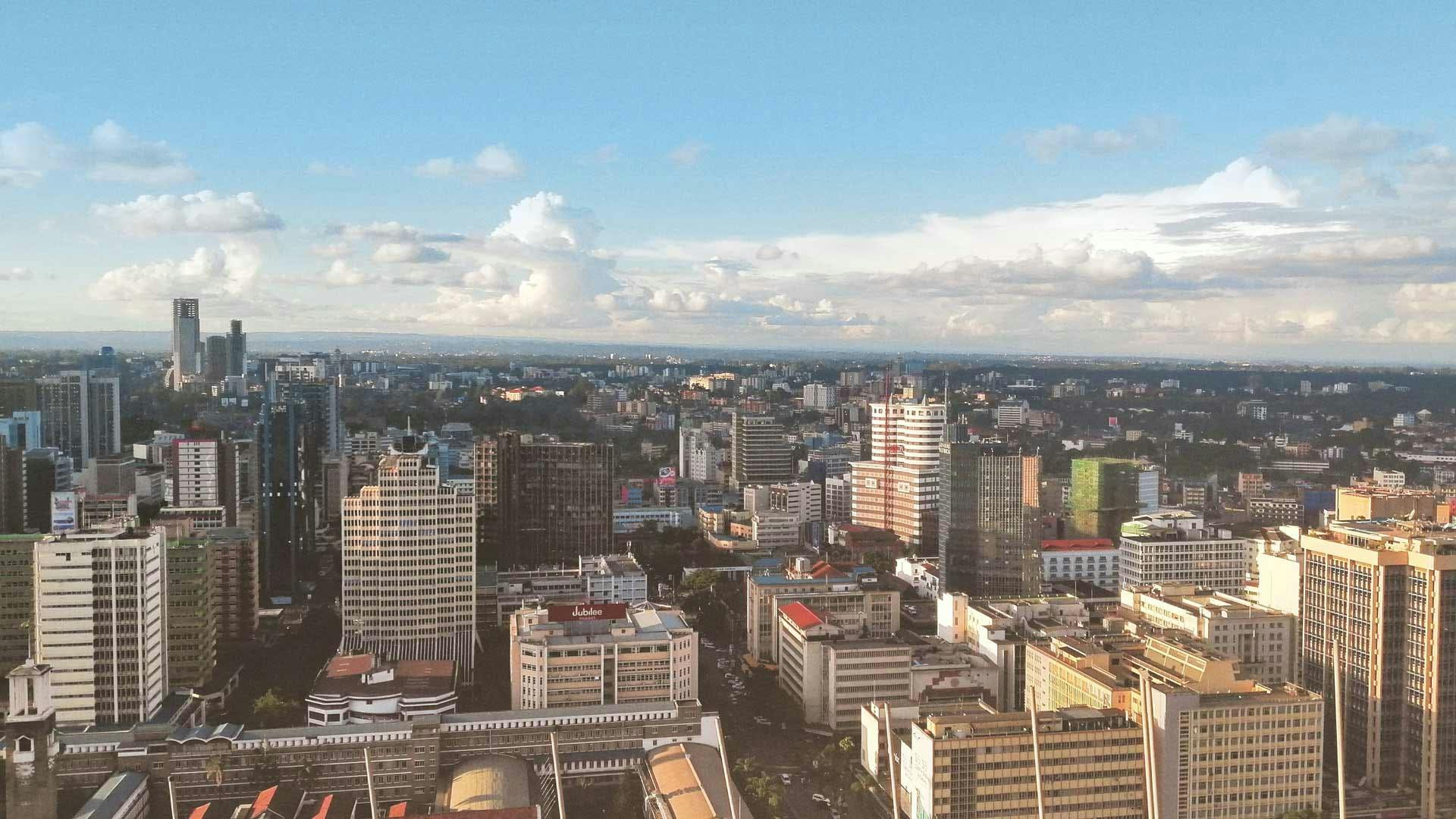How to start a business in Nairobi
airobi is a thriving cosmopolitan hub, the center of Kenya’s government and base for most of the country’s major businesses. Known as the Green City in the Sun, it’s home to over four million people, many from elsewhere in Kenya and a significant portion from overseas.
In recent years, Nairobi has become established as a tech hub, in part due to a series of undersea fiber-optic cables providing fast internet to the region and an exceptionally young workforce. Tech is such a big part of the ecosystem here that it’s been dubbed Silicon Savannah.
With this solid technical infrastructure and a quickly growing ecosystem, there’s lots of opportunity for entrepreneurs. Want to start up in Nairobi? Informed by Startup Guide Nairobi, here’s what you need to know.
Tech is such a big part of the ecosystem here that it’s been dubbed Silicon Savannah.

What is Nairobi like to live in?
Nairobi offers a unique combination of urban life and breathtaking natural beauty. Beyond the skyscrapers, congestion and roadside markets of the city center is the Nairobi National Park, which is home to wild animals and unique plant life. Plains, cliffs and forest are within reach, and the city is a base for tourists setting out on safari.
All of Kenya’s forty-two tribes are represented here, as well as people from around the world. It’s home to the third-largest UN center after New York and Geneva, and to many multinationals and NGOs. The result is a truly multicultural city. Spend the morning at the elephant orphanage, then have sushi for lunch before heading to the Maasai Market.
Kenya’s official languages are English and Swahili (also known as Kiswahili), and most Kenyans also speak their tribal language. Business is conducted in both English and Swahili, but you’ll be able to get by with just English when dealing with government agencies or other official offices.
One of Nairobi’s first and most successful innovations was the mobile money app M-Pesa, which paved the way for a flood of fintech products. The tech scene and entrepreneurship are both encouraged by government initiatives: Tatu City is a mixed-use development on the outskirts of Nairobi that has Special Economic Zone status, and further out, Konza Technology City is being constructed as a part of Kenya’s national development plan.

Photo by Sylvia K
How are the people?
Kenyans are extremely entrepreneurial – you’ll find everything from furniture to flowers for sale at roadside stalls. Prices in shops are fixed, but rates in the jua kal (meaning “out in the hot sun”) are open to negotiation.
Harambee is an important Kenyan concept; meaning “to pull together,” the word is on the Kenyan coat of arms and the national football team is the Harambee Stars. You’ll see this value represented in daily interactions.
The average age in Kenya is eighteen, and it’s common for the elderly to live in the rural area of their birth and look after grandchildren while their children work in Nairobi and send money home.
Kenyans are extremely entrepreneurial.

Photo by Mustafa Omar
Is Nairobi affordable?
Anyone who assumes living in Africa is cheap will get a shock in Nairobi. Locally grown fruit and vegetables bought in markets and from roadside kiosks are affordable, but malls, supermarkets and restaurants can cost as much as in Europe.
Matatus (shared minibuses) are an affordable way to get around, costing KSh 30 ($0.29) for a short trip, but expect to pay around KSh 300 ($2.90) for the same trip in an Uber or Taxify and at least KSh 1,200 ($11.55) to take one across town. Gas costs around KSh 340 ($3.27) per gallon.
Eating out in a local joint will cost you around KSh 300 ($2.90) and a beer around KSh 200 ($1.93). If you prefer to eat in Kenya’s wonderful Japanese, Peruvian, Italian or other international restaurants, expect to pay KSh 2,000–KSh 6,000 (around $19–$58) per person including alcohol.
Rental prices vary depending on location, but budget around KSh 7,300 ($700) for a one-bedroom. Expect to sign a one- or two-year contract with a damage deposit of one month’s rent.

What do I need to know before I move to Nairobi?
People traveling to Kenya from a country with risk of yellow fever transmission are required to provide a certificate of vaccination. Talk to your doctor about what other medical precautions to take, including whether to be vaccinated for hepatitis A, hepatitis B, typhoid, cholera and rabies.
The weather in Nairobi is mild year-round, and there are rainy periods from March to May and November to December, so be sure to pack appropriately. Light layers are recommended, with at least a couple of long-sleeved shirts or jackets for when it gets cool at night and a raincoat in case of showers.
Most ATMs in Kenya accept international credit and debit cards, so you’ll be able to easily withdraw cash, but consider bringing enough with you to cover incidentals for the first few days. Since public health insurance is minimal, it's recommended you also take out private medical insurance.

Photo by Joecalih
Do I need a visa? What about a work permit?
Visitors to Kenya should buy a visa before travel at evisa.go.ke. To work in Kenya, you’ll need a work permit and to register as resident in Kenya, which can only be done from within the country.
Information about the different classes of permits and what documents, qualifications or investment are required for each can be found at the Foreign Nationals Service website. You can start the application for a work permit and register your residence through the same site.
Fill out the forms and pay online, then print the completed application and deliver it with your relevant supporting documents to Nyayo House in the Central Business District. Note that any documents in foreign languages must be translated into English by an authorized institution.
A successful application will get you a work permit, a residency stamp in your passport and a foreigner ID card, all valid for two years. Dependent passes are issued to people who are married to or dependents of a Kenyan citizen, Kenyan permit holder or a permanent resident.
Registering a company in Kenya has been streamlined in recent years.
How do I start a company in Nairobi?
Registering a company in Kenya has been streamlined in recent years. Start the process by creating an account with eCitizen and applying to register the name of the company, company directors and shareholders, company address and capital holdings.
You’ll also need a PIN from the Kenya Revenue Authority (KRA), and a Memorandum and Articles of Association for your company. You’re also required to register with the National Social Security Fund and the NHIF.
Finally, deliver the printed application forms, proof of payment and supporting documents to the Business Registration Department or mail them to the Registrar of Companies. Note that limited liability partnerships are still registered manually at the company registry.
You should also register with the Kenya Investment Authority, where, depending on the business activities of your company, you can get Special Economic Zone or Export Processing Zone licenses. Also register at the Kenya National Chamber of Commerce and Industry and with Nairobi City Council, through which you can access various services including business permits, county fees, food handling certificates and city parking.
Mettā Nairobi is a space for founders, policy makers, academics and investors
to collaborate. It offers both a coworking space and digital entrepreneurs’ network to foster connections. If you’re looking for partners or collaborators in the local ecosystem, sign up for a membership or go to some of the frequent events held here.
[You may also like: Starting a business in Lagos: What you need to know ]

Photo by Zac Wolff
What are taxes like in Nairobi?
Taxation is complicated in Kenya, and a local accountant is invaluable. See the CPA member directory for a list of firms. Both residents and nonresidents are subject to income tax, with tax-rate brackets from 10% for those earning less than KSh 288,000 ($2,800) to 25% for those earning more than KSh 688,000 ($6,600), with personal allowances.
You’ll need your KRA PIN and are required to file an annual return by June 30 the following year. Employers are required to deduct Pay As You Earn (PAYE) from their employees and remit it to the KRA. Certain income is liable for withholding tax, which must be deducted at the source. Corporation tax is levied annually on limited companies, trusts and cooperatives. Value Added Tax is 16%.

How do I handle money in Nairobi?
Opening a bank account is easy if you have a work permit, resident visa or dependent pass. Just show your passport with the relevant stamp and the bank teller will open an account for you.
There are plenty of local and international banks in Nairobi, and ATMs that accept cards from most banks are spread throughout the city. Most major businesses including hotels, shops, restaurants and bars accept local and international credit and debit cards.
Vodafone’s mobile money app, M-Pesa, has become Kenya’s preferred payment method. It is accepted by almost everyone, including roadside kiosks, taxi drivers and government services. To access M-Pesa, you’ll need a Safaricom SIM card, available at all Safaricom shops, where you’ll need to show your ID or passport. The Safaricom representative will show you how to set up the app and use the service. Airtel offers a similar app, which is also widely accepted.
Ready to start a business in Nairobi? Find more valuable resources and inspiring stories in Startup Guide Nairobi.
Written by Tamara Britten.
Repackaged by Hazel Boydell.
Header photo by Joecalih

